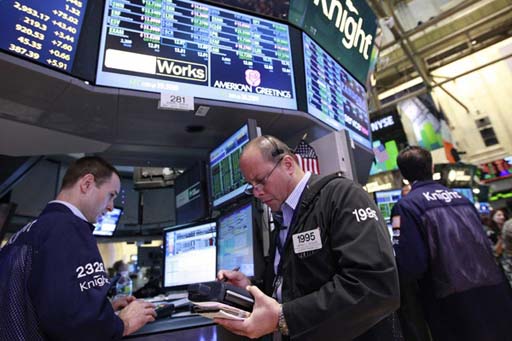Eurocrash: single currency isolates Athens
Tuesday 4 September 2012
In the real world economy, however, the steady decline continues with the latest example being Athens airport. According to Handelsblatt, so dire has been the effect of the Greek eurocrisis that the purchasing power of the average Greek family has dropped to its 1979 level, as a result of which air passenger traffic has plummeted. In the first seven months of 2012 the number of passengers in Athens dropped almost twelve percent from 8.4 to 7.4 million compared with the previous year. For international trips, the decline was close to 14 percent. Airlines have been quick to respond. From this winter, for the first time in 45 years Greece will have no direct service to the United States. Thai Airways has also thrown in the towel after 36 years, and Singapore Airlines has taken Athens off its destination list, along with Gulf Air and the Portuguese airline TAP. An even more ominous sign is that Brussels Airlines is cutting its service between Athens and the European metropolis, while other airlines are also thinning out their schedules. Air France is reducing flights between Paris and Athens from four to two. Lufthansa (when it is not on strike) is to cancel one of its three daily flights to Frankfurt and reduce the weekly flights between Munich and Athens from 19 to 14. But it is not only the eurocrisis which is damaging Athens airport. Industry observers attribute the fall in passenger traffic to excessive fees from the main operators, Hochtief AG, which are massively increasing the cost of tickets. Olympic Air's return flight between Athens and Thessaloniki, for instance, is €44.00 but becomes €50.64 with added fees and taxes. But, for some international flights, the costs are higher than the ticket price. For example, Munich to Athens and return is as low as €49 but the taxes and charges are € 69.73. While foreign airports can simply avoid Athens, this is having a deevastating effect on Greek airlines, Aegean Airlines, which is the largest customer of Athens airport, produced losses of €38.5 million on a turnover of just under €270 million. The biggest problem of all, though, is the contracting economy, which is expected to shrink by 4.5 percent this year but will probably shrink more. The great bonanza brought by the euro, therefore, has had the effect of shutting down contact with the rest of the world. How ironic it is that, in the heyday of the campaign for Britain to join the euro, the great scare was that Britain would be isolated in Europe. For once, as we gaze upon the picture of the weed-infested arrivals at Athens airport (above), we can enjoy the last laugh. COMMENT THREAD Richard North 04/09/2012 |
Eurocrash: market intelligence
Tuesday 4 September 2012
This, unless you know different, is one of the first attempts to do this - even though the EU is moving in - and reflects how serious a problem it has become. This analysis published by the School of Accountancy in Singapore, sets out some of the problems, under the title "The Dark Side of Trading". A more straightforward piece is here from Time Magazine earlier last month. There is very little being written out this in the British press, and you have to go back to April 2010 to find the Failygraph reporting that the practice was to be scrutinised by the Committee of European Securities Regulators (CESR). However, with as much as 70 percent of trading on some markets carried out automatically by computer, this has a huge distorting effect on the way markets operate and the signals being sent. Despite this, when it comes to market analysis, one still sees various indices reported daily with much reverence, together with commentators intoning on the significance of their movements. But one gets no sense that the average hack is aware that, in the main, they are charting the activity of computer algorithms, which have no other purpose than to make money - and in a very different way from traditional market operation. To then attribute any "intelligence" to this process, much less draw political conclusions from market "sentiment" seems to me more than a little unsound. Whatever messages the markets once were sending us are now heavily distorted as machines take over more and more of the process, leaving human beings on the margins. Thatcher, amongst others, might have said that you can't buck the markets, but the markets of today are very different. The trading patterns of today have their dangers and the use of data as economic – and especially political – tools is not to be relied upon. I'll pick up the threads of the mainstream eurocrash in the morning. COMMENT THREAD Richard North 04/09/2012 |
Tuesday, 4 September 2012
Posted by
Britannia Radio
at
14:56
![]()
























